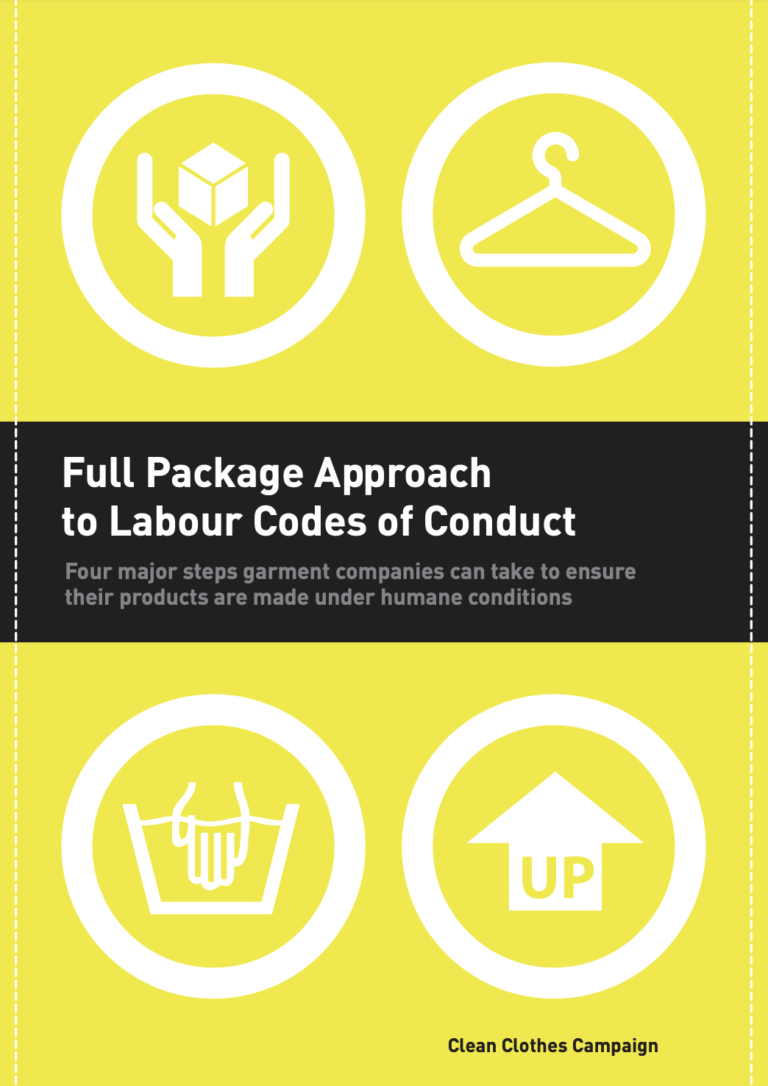In this guide the Clean Clothes Campaign offers guidelines on what companies can do to better assess, implement, and verify compliance with labour standards in their supply chains, and eliminate abuses where and when they arise. The exploitation and abuses of workers in international supply chains prevalent in many industries are a consequence of both the failure of governments to protect their citizens’ labour rights and the extent to which business organisations avoid their respective responsibilities toward their employees.
Sweatshop abuses are a systemic problem – there are no companies that are totally clean or totally dirty. Every company that sources globally faces problems that need to be addressed. While there are many steps companies can and should take (and to a certain extent have already taken) to improve workers rights, there are no quick-fix solutions. Instead, companies should adopt a comprehensive approach and engage in ongoing remediation efforts.

